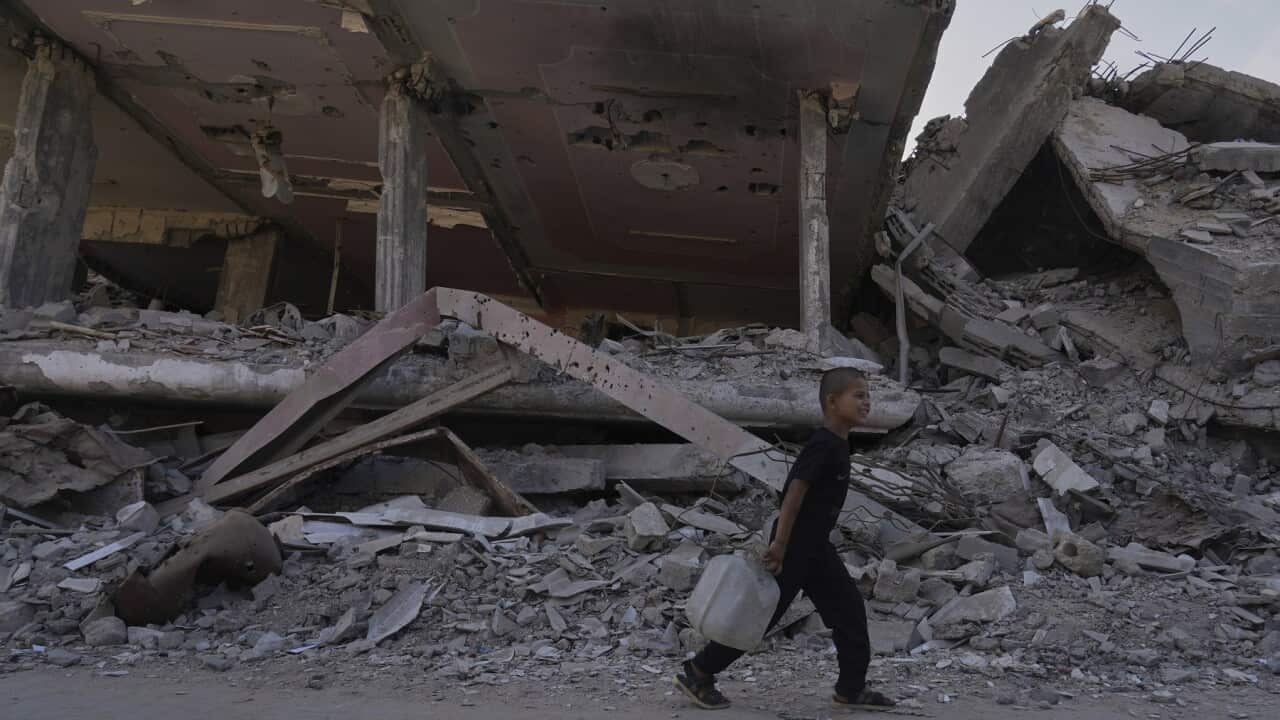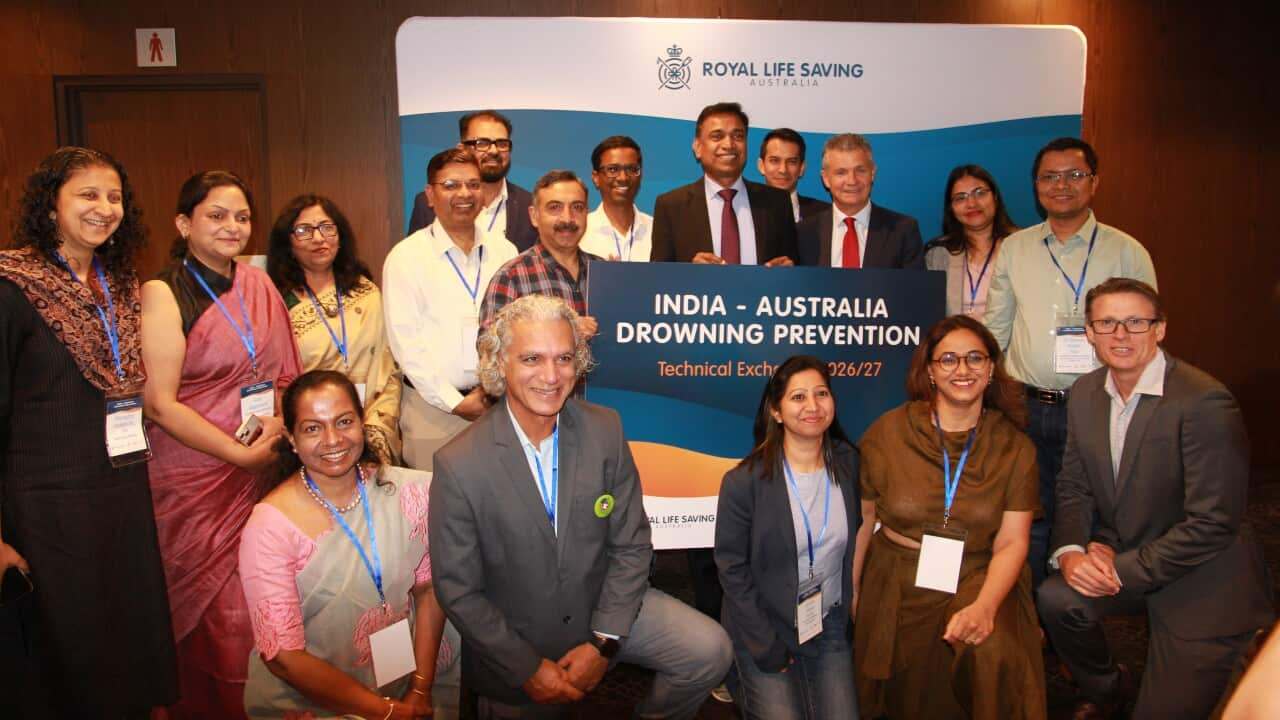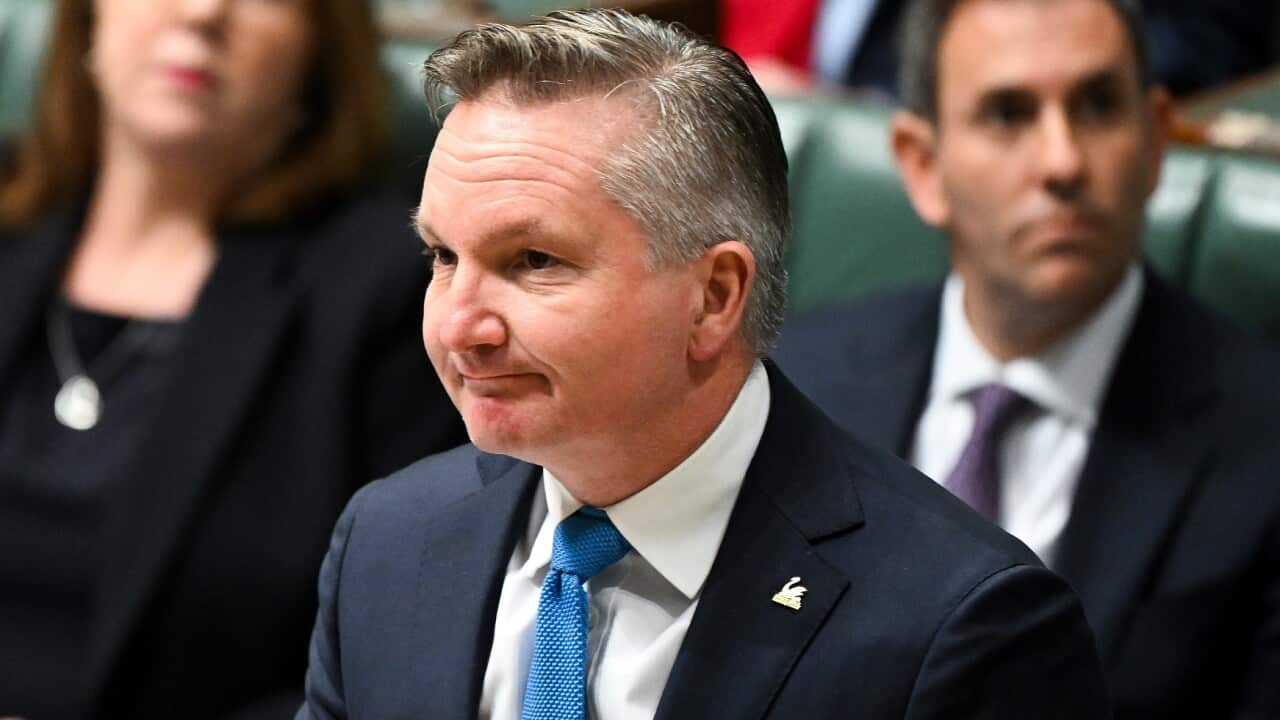Listen to Australian and world news, and follow trending topics with SBS News Podcasts.
TRANSCRIPT
The United Nations is warning that conditions now in Gaza are catastrophic, and will get even worse quickly.
UN spokesperson Stephanie Tremblay says food shortages and malnutrition are pushing Gaza’s most vulnerable beyond the edge.
“Hunger and malnutrition increase the risk of illnesses that weaken the immune system, especially among women, children, older people and those with disabilities and chronic diseases. The consequences can turn deadly fast. ... Just yesterday, the local health authorities announced that two more people died from starvation. In the meantime, the trickle of supplies that are making it into Gaza are nowhere near adequate to address the immense needs."
Only five out of 15 planned humanitarian missions were completed this week due to access denials or obstructions.
The UN says it is ready to act, but claims it is being blocked at almost every turn.
"If Israel opens the crossings, lets fuel and equipment in, and allows humanitarian staff to operate safely, we will accelerate the delivery of food aid, health services, clean water and waste management, nutrition supplies and shelter materials. Ensuring that these elements are in place will be critical to scaling-up assistance in the event of a ceasefire. However, right now, various constraints imposed by the Israeli authorities on aid delivery continue to hamper our ability to respond."
Israel continues to deny it's responsible for what the World Health organisation claims is a man-made famine in Gaza.
Meanwhile, an Israeli airstrike has hit a school sheltering displaced families in Gaza City.
At least five people were killed.
Witnesses, including this man, Mohammed Abu Odeh, describe a scene of blood, rubble and body parts.
“We were sitting in God’s protection, getting ready for prayer. Suddenly, there was a targeting of the school. We rushed quickly toward the classroom (the targeted place was a classroom, a room). We found body parts scattered all over the ground - adults, children, women, and kids. No one here was left without being targeted and martyred."
Another man in the area, Mohammed Jendya says Gazans are being asked to endure too much.
“We endured starvation. Now we have to endure rockets? We can’t even get flour, and they’re dropping missiles on us. It’s injustice.”
In soup kitchen lines, mothers hold out empty pots.
One woman, Umm Mohammed, says she has no lentils, no rice, not even bread to give her children.
At a shelter nearby, Samah Matar watches over her two sons, both with cerebral palsy.
Four-year-old Ameer weighs just 7.4 kilograms.
His older brother, Youssef, has lost nearly a third of his body weight since the war began.
Ms Matar says she can't provide for them.
“The two boys have cerebral palsy. I can’t even find milk or nappies for them because of the high rise in prices in Gaza, which led to malnourishment in both children. I am also a breastfeeding mother, I have a son who is 10-month-old suffering from malnourishment. The weight of the children is very low, their bones are protruding, I can’t provide them with milk or nappies, not even bread, sugar to make them some tea, I cannot provide it for them.”
U-N Secretary-General Antonio Guterres has made some of his most forceful comments yet on the situation in Gaza.
“From the beginning, I have repeatedly condemned the horrific 7 October terror attacks by Hamas. But nothing can justify the explosion of death and destruction since. The scale and scope is beyond anything we have seen in recent times. I cannot explain the level of indifference and inaction we see by too many in the international community. The lack of compassion. The lack of truth. The lack of humanity. ... Children speak of wanting to go to heaven, because, at least, they say, there is food there. We hold video calls with our own humanitarians who are starving before our eyes."
He is demanding an immediate and permanent ceasefire, the release of all hostages, and unimpeded humanitarian access.
He says the UN stands ready to scale up operations, if only given the chance.
“Our plans are ready, and they are finalised. we know what works – and we know what does not. ... We need action. An immediate and permanent ceasefire. The immediate and unconditional release of all hostages, and immediate and unimpeded humanitarian access. At the same time, we need urgent, concrete, and irreversible steps towards a two-state solution.”
Despite those calls, the path to peace appears to have grown narrower.
Both Israel and the United States have pulled out of ceasefire negotiations in Qatar.
US President Donald Trump citing what he calls Hamas’ unwillingness to make a deal.
“Hamas didn’t want to make a deal. I think they want to die. And it got to a point where you have to finish the job... They’re going to be hunted down.”
Mr Trump says Hamas forfeited its leverage by refusing to release the last hostages.
He's also defended US humanitarian contributions.
"We contributed $60 million to food and supplies and everything else. We hope the money gets there because, you know, that money gets taken, the food gets taken. We're going to do more, but we gave a lot of money. We gave a majority of the money, and the sad part is that no other country other than us gives anything."
Mr Trump’s claim is disputed by multiple aid organisations and donor states, who say the bottleneck is not money, but access.
Israeli Prime Minister Benjamin Netanyahu echoed President Trump’s tone, stating Israel is considering what he says are alternative options to both retrieve hostages and defeat Hamas, signalling a likely intensification of the military campaign.
But Mr Guterres says this matter goes well beyond a military or ancient ideological battle.
"This is not just a humanitarian crisis. It is a moral crisis that challenges the global conscience. ... But words don’t feed hungry children.”













